The Biological Basis of Human Behavior accomplishes what numerous introductory books have failed to do: present an evolutionary explanation of why it is we do what we do. This comprehensive book brings together a diverse number of traditionally separate disciplines including paleoanthropology, psychology, and sociology in its attempt to understand human traits. Rich in controversial topics, this text integrates subjects such as paleontology, speech, the structure of the brain, Eve, and the rather odd way in which humans reproduce. Written as a narrative, this excellent learning tool relates modern behavior to the past environments, stresses, and challenges still evident in the modern human world. For anyone interested in the biological bases of human behavior; psychology; or anthropology.
Biological Bases of Human Behavior, The 1st Edition
KSh 7,420.00
The Biological Basis of Human Behavior accomplishes what numerous introductory books have failed to do: present an evolutionary explanation of why it is we do what we do. This comprehensive book brings together a diverse number of traditionally separate disciplines including paleoanthropology, psychology, and sociology in its attempt to understand human traits. Rich in controversial topics, this text integrates subjects such as paleontology, speech, the structure of the brain, Eve, and the rather odd way in which humans reproduce. Written as a narrative, this excellent learning tool relates modern behavior to the past environments, stresses, and challenges still evident in the modern human world. For anyone interested in the biological bases of human behavior; psychology; or anthropology.
1 in stock
Related products
-
Maitland’s Vertebral Manipulation, 8th Edition Management of Neuromusculoskeletal Disorders – Volume 1
KSh 21,840.00The legacy of Geoff Maitland and his seminal work, Vertebral Manipulation, continues in this eighth edition, with Elly Hengeveld and Kevin Banks leading an international team of experts who demonstrate how to manage vertebral neuromusculoskeletal disorders using the principles and practice of the Maitland Concept. Together, they ensure the heart of the Concept beats on by promoting collaborative decision-making with the patient at centre and emphasizing the art and science of observation, listening, palpation and movement skills.
A key feature of the new edition focuses on a more evidence-based and analytical view of the role of mobilization and manipulation in clinical practice The authors have written in a way that reflects their application of the Maitland Concept and how they have integrated techniques in the light of advancement in professional knowledge. Each chapter stands alone as a ‘master class’.
The text is systematically arranged focusing on detailed assessment, clinical reasoning and re-assessment to determine the physical dysfunction and efficacy of manipulative physiotherapy techniques, while also advocating continuous communication and interaction. Techniques of passive mobilization are also described, specifically designed around the individual patient’s condition.
All the chapters are written from a clinical perspective and review the evidence which informs how to deal with and manage spinal and pelvic pain as they present to the practitioner. Furthermore, each vertebral region (cervical, thoracic, lumbar, sacroiliac/pelvic) is considered from the point of view of best practice in analysing and hypothesising subjective data, examination, treatment and management of spinal pain conditions.
Brand new to the eighth edition is the addition of a companion website – Maitland’s Manipulation eResources (www.maitlandsresources.com) – providing access to a range of valuable learning materials which include videos, MCQs, interactive case studies, research links, and bonus chapters
“This text would be an excellent resource to any practising physiotherapist or health professional dealing with spinal disorders. It would enhance the manual skills and clinical reasoning of any therapist regardless of their experience. It is concise, clear to follow and covers each spinal section extensively with evidence-based practise and thought stimulating case studies and examples throughout.” Reviewed by: Tracy Ward, MCSP, BSc (HONS), MSc, Senior Physiotherapist and Clinical Pilates Specialist, BMI Healthcare Albyn Hospital, Aberdeen, Date: Oct 14
“Drawing on a wide spectrum of literature and expert guest authors to explain the reasoning behind treatment techniques this edition takes the reader on a wonderful clinical journey way beyond the Maitland concept.” Reviewed by: Tobias Bremer Date: 24/07/2014
-
The 4 Day Diet
KSh 1,500.00With over twenty years of experience watching how and why dieters lose weight―and how they don’t―Dr. Ian developed a program that actually retrains the brain to diet naturally. In The 4 Day Diet, Dr. Ian distills that program into the acronym SMARTER:
–Sense of where you are: don’t fool yourself about your habits and what kind of shape you’re in
–Make realistic goals: don’t sabotage your success by trying to do too much too fast
–Activate your motivational engine: learn how to be your own best diet coach
–Resist temptation: how to put yourself in an environment that supports your diet and keeps you disciplined
–Think thin: why visualization works
–Every bite counts: track your intake, but learn how to enjoy what you eat more at the same time
–Reward yourself: indulge yourself in small and big ways along the road to permanent weight loss -
Social Work and Mental Health (Transforming Social Work Practice Series)
With 1 in 4 people experiencing a mental health problem in any given year, mental health is a more important part of social work training than ever before, and all successful social workers need to understand the core values, skills and knowledge that underpin excellent practice in a modern mental health system.
Written as an accessible introduction to the complex issues around mental health, this book has become a classic in its field. Law and policy are clearly outlined while the authors give space to important ethical considerations when working with the most vulnerable in society. There are clear links between policy, legislation and real life practice as well as a wealth of learning features.
-
Understanding Psychology
KSh 9,525.00The overall philosophy of Understanding Psychology is to bring complex psychological concepts to students’ lives. The goal of this program is to make psychology relevant, fun, interesting, and even exciting, making it approachable. Understanding Psychology is an interactive book with:
- hands-on activities
- case studies
- current issues and readings about the field of psychology
The Understanding Psychology program was designed to help students understand how this subject is part of their day-to-day lives. Research in assessment and APA literature was reviewed. The program’s authors, academic consultants, and experienced Social Studies educators reviewed the assessment plan for Understanding Psychology. Understanding Psychology includes a variety of assessment instruments to support instruction. The test booklet provides three-part chapter tests: Matching, Multiple Choice, and Essay”
-
The Behavioral Health Specialist in Primary Care
KSh 14,014.00Patients with chronic conditions often need psychosocial support and brief counseling to help them make the lifestyle and behavioral changes required to prevent disease complications. This innovative text, with contributions from respected clinicians and researchers in all arenas of behavioral health, provides comprehensive training for all health professionalsóincluding those in medicine, nursing, social work, mental health, and clinical and health psychologyówho desire targeted evidence-based training in behavioral health skills. Rich case examples drawn from typical patient presentations demonstrate the relationship between physical and psychological health and the complexity of behavioral change in chronic illness.
This text is a timely, relevant, and practical resource for all members of the primary care team. It prepares team members to work in the model of patient-centered integrated care in accordance with the recommendations of the Affordable Care Act (ACA) and the National Committee for Quality Assurance (NCQA) medical home standards for identifying patient needs and providing coordinated and comprehensive patient care. The book focuses on knowledge and skills needed for working with the most common chronic conditions such as diabetes, obesity, chronic pain, cardiovascular conditions, sleep disorders, geriatric conditions, cancer-related conditions, and substance abuse. It includes chapters on epidemiological trends in chronic illness and systems medicine. Theories of health behavior and behavioral change and evidence-based interventions provide a foundation for skill development, followed by detailed coverage of the requirements for behavioral management of specific chronic conditions. Sample referrals and consultation notes provide concrete examples of how the behavioral health specialist might respond to a referral.
KEY FEATURES:
- Provides comprehensive graduate-level training for the role of Behavioral Health Specialist
- Describes the health promotion and counseling skills needed to function as part of an integrated health team
- Focuses on proficiencies needed for working with common chronic conditions
- Addresses the psychosocial components of primary care disorders
- Includes case examples demonstrating the relationship between physical and psychological health and the complexity of behavioral change in chronic illness
-
Health Behavior: Theory, Research, and Practice, 5th Edition
KSh 18,010.00Health Behavior: Theory, Research and Practice provides a thorough introduction to understanding and changing health behavior, core tenets of the public health role. Covering theory, applications, and research, this comprehensive book has become the gold standard of health behavior texts. This new fifth edition has been updated to reflect the most recent changes in the public health field with a focus on health behavior, including coverage of the intersection of health and community, culture, and communication, with detailed explanations of both established and emerging theories. Offering perspective applicable at the individual, interpersonal, group, and community levels, this essential guide provides the most complete coverage of the field to give public health students and practitioners an authoritative reference for both the theoretical and practical aspects of health behavior.
A deep understanding of human behaviors is essential for effective public health and health care management. This guide provides the most complete, up-to-date information in the field, to give you a real-world understanding and the background knowledge to apply it successfully.
- Learn how e-health and social media factor into health communication
- Explore the link between culture and health, and the importance of community
- Get up to date on emerging theories of health behavior and their applications
- Examine the push toward evidence-based interventions, and global applications
Written and edited by the leading health and social behavior theorists and researchers, Health Behavior: Theory, Research and Practice provides the information and real-world perspective that builds a solid understanding of how to analyze and improve health behaviors and health.18010
-

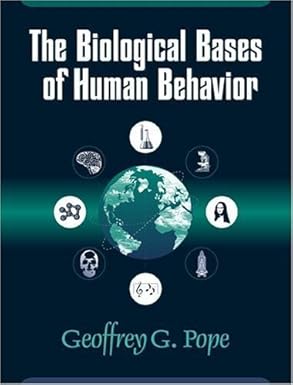

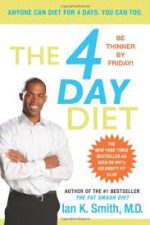

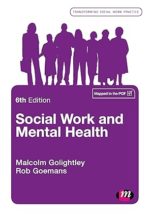

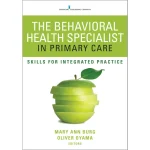

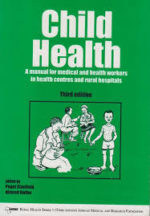
Be the first to review “Biological Bases of Human Behavior, The 1st Edition”